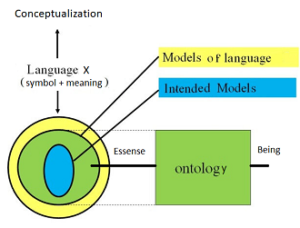
Arquivo para January 26th, 2024
Ontology and Power
Not the external aspects that show what kind of power we nurture and defend on a daily basis, but those that we concretely place inside our Being and practice as a consequence of what we have inside.
power we nurture and defend on a daily basis, but those that we concretely place inside our Being and practice as a consequence of what we have inside.
Just like vices, virtues can also have a virtuous circle, they can become habits, and in the face of each phenomenon or thing, we take an attitude that has a good or bad intention.
Power is strength, capacity and, at the same time, authority, but there is the authority of testimony and public recognition, which is a power that is imposed through respect, the only relationship that can give it symmetry (equality before the Other) , and there is the power of force, the one that leads to oppression and ultimately, wars.
We find this in the philosophy of Idealism, which led to a conception of the Absolute and the State, whose peak was Hegelian idealism, and we can find it in everyday life in theories of self-esteem, self-valuation to the detriment of the Other and literature that emphasize the “I”.
Ontology, which is the deepest study of Being and Entity, on the contrary, goes in search of the deepest roots of Being and individual fulfillment without forgetting the relationship with the Other and with things, yes there is an emphasis on “things” today (see Non-Things by Byung Chul Han) however, concrete relationships with nature, food and money say something about who we are.
In this philosophy, the essence is treated as a characteristic element of being in someone, like rationality, which makes man, for Saint Thomas Aquinas, the essence is “quiddity” (the thing in itself) or “nature” encompasses everything that It is expressed in the definition of the thing, both in its form and its matter.
There are no concepts in Ontology, but rather conceptualization, which is a relationship with Being on languages.
This philosophy, although metaphysical, is considered realism, as opposed to nominalism where naming things and conceptualizing them is stronger than the essence of what is, we observe this in all fields of philosophy and human life, we are a “label” and not what we are interiorly and essentially.
The authority of those who expel what is bad for the essence of human life and the civilizing process must be analyzed in light of these categories and not just from the perspective of power.
The essence of Christ’s authority, which underlies his “culture” was a type of Authority in essence, says the reading: “Everyone was amazed at his teaching, because he taught with those who have authority, not with the teachers of the Law” ( Mc 1:22) and even cast out “demons”.

